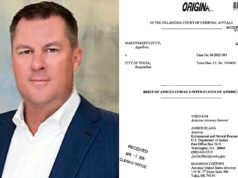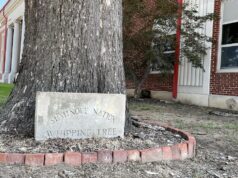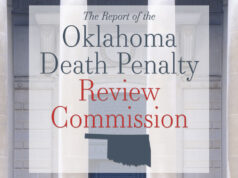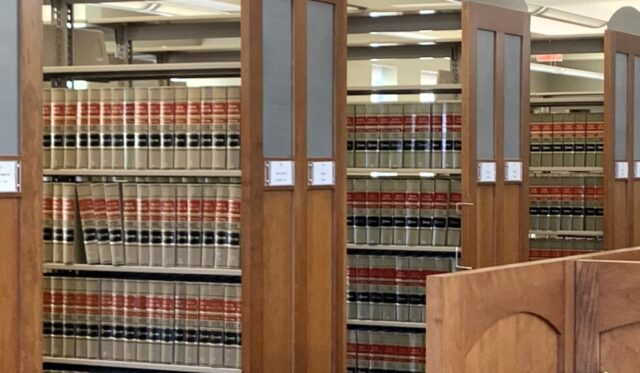
For the second time, Oklahoma Attorney General Gentner Drummond has dismissed litigation filed by Gov. Kevin Stitt against a vendor involved in the administration of federal education relief funds.
Meanwhile, Oklahoma continues to make national legal news with the U.S. Supreme Court agreeing to consider the pending execution of Richard Glossip, whose execution has been stayed several times before. Now his claims of innocence despite multiple trial convictions are before the nation’s highest court.
In other criminal law news, Don Eagleton Jr. has been sentenced for his role in the Phil Albert case, the Oklahoma County Jail is transferring inmates with severe mental health problems to a facility in Vinita, and former Tulsa police officer Deangelo Reyes remains at large after a failed attempt to apprehend him in Cleveland County resulted in a jurisdictional dispute between the sheriff’s office and Lexington police.
In tribal law news, the Choctaw Nation has approved plans to open a third courthouse in McAlester, and the Sac and Fox Nation chief has a strong statement about the impact of an oil spill within his tribe’s historic boundaries.
You’ll find recaps and links to those stories and more within this legal roundup.
Oklahoma’s executions draw SCOTUS review
In 2024, Oklahoma is set to lead the nation in the number of people put to death, despite a growing movement for a moratorium on executions in the state. Now, an Oklahoma death penalty case has found its way to the U.S. Supreme Court.
On Jan. 22, the U.S. Supreme Court agreed to review the death penalty case of Richard Glossip, who was convicted of the murder of Barry Van Treese in and sentenced to death in 1998. After that conviction was overturned, Glossip was retried and sentenced to death again in 2004.
After multiple execution dates have been postponed for legal proceedings and the Oklahoma Pardon and Parole Board rejected his application for clemency, Glossip’s case will be decided by the nation’s highest court. In a rare move from a sitting attorney general who would normally be responsible for defending the state’s conviction, Attorney General Gentner Drummond is supporting Glossip, saying he cannot defend the capital case “because of prosecutorial misconduct and cumulative error.”
Glossip also made headlines in Oklahoma last month when Reps. Justin Humphrey (R-Lane) and Kevin McDugle (R-Broken Arrow), filed a lawsuit against District Attorney Jason Hicks seeking release of text messages involving Glossip, the April Pardon and Parole Board meeting and the Oklahoma District Attorneys Association. According to The Intercept, the Oklahoma District Attorneys Association submitted a brief to the Supreme Court supporting Glossip’s execution.
ClassWallet suit dismissed, again

Drummond dismissed a lawsuit filed by Gov. Kevin Stitt against ClassWallet for the second time on Feb. 12, after previously dismissing a similar suit filed by former Attorney General John O’Connor shortly after taking office. The suit stemmed from allegations of improper spending of Governor’s Education Emergency Relief (GEER) funds.
The lawsuit has been a point of contention between the two executives, with the governor blaming the ClassWallet for not handling federal funds within the bounds of the law and the attorney general faulting the Stitt administration and State Superintendent of Public Instruction Ryan Walters, who served as Stitt’s secretary of education when the pandemic-era relief dollars were spent.
A pair of audits by the federal government and State Auditor and Inspector Cindy Byrd found that state officials were to blame for the misspending, which included over $1 million of impermissible purchases by Oklahoma families seeking support for education-related expenses while schools were closed or limited. Both audits placed the blame for the misspending on a lack of internal safeguards that state officials were responsible for implementing.
According to Nuria Martinez-Keel with Oklahoma Voice, O’Connor’s initial suit was dismissed by Drummond shortly after he took office in January 2023. Although the lawsuit had lingered with little action from Stitt’s attorneys, Stitt was critical of Drummond’s dismissal and — on Jan. 30, 2024 — he had private counsel refile the suit on the state’s behalf. On Feb. 12, Drummond intervened in the case and had it dismissed with prejudice, which prevents the suit from being refiled.
On Friday, Stitt called Drummond’s decision “a head-scratcher” and said he was surprised by the dismissal despite prior correspondence with his office on the topic. Stitt’s communications director criticized Drummond in a statement.
“The attorney general has chosen to continue operating a political office in pursuit of personal aspirations as opposed to representing the state’s interests,” Abegail Cave said. “The governor has now twice tried to hold this vendor accountable for mishandling taxpayer dollars. Both times, Drummond has sided with ClassWallet.”
Drummond’s office has been collaborating with the FBI on a criminal investigation into the misspending of the Governor’s Emergency Education Relief funds, and he maintains the lawsuit against ClassWallet was a waste of resources.
“I have been clear and consistent in communicating with the governor on this matter,” Drummond said in a press release. “I will not allow taxpayer funds and state resources to be wasted in pursuit of this meritless lawsuit.”
In legal filings, Drummond was more pointed in his criticism, accusing the governor of being “eager to shift blame” for the GEER-funds scandal.
“Those audits confirm that his administration rejected ClassWallet’s internal controls and did not perform review expenditures,” Drummond wrote in court filings. “When ClassWallet asked the person managing the program on behalf of the state, Ryan Walters, whether ClassWallet should direct questions regarding allowable items for purchase to the state, Walters responded there was blanket approval with vendors on the platform.”
Settlement yields $7.4 million in civil penalties for oil spill
The U.S. Attorney’s Office for the Western District of Oklahoma settled with two oil companies — Holly Energy Partners-Operating L.P. and Osage Pipe Line Company LLC — which agreed to pay $7.4 million in civil penalties and to clean up damage caused by an oil spill in July 2022.
The settlement was announced Jan. 30 and will help clean up the nearly 300,000 gallons of crude oil that leaked into Skull Creek north of Cushing within the Sac and Fox Nation’s historical territory.
The companies were found to have violated the Clean Water Act and will have to help with cleanup, improve their pipeline management, increase training for employees, and improve their notification policies for spills within the territory of tribal governments.
Randle Carter, principal chief of the Sac and Fox Nation, issued a two-page statement about the settlement and the spill, saying that 2014 inspections had identified the eventual rupture site as a “potential area of concern.” The tribe will receive none of the funds outlined in the settlement, and Carter said “oil continues to be visible today” in the area.
“The oil discharged from the pipeline polluted Skull Creek and its shoreline, impacted soil, vegetation, surface water and sediment on the creek bottom. Hundreds of trees, along with plants and shrubs, were destroyed or have been removed as part of response activities. The pipeline rupture has also impacted Sac and Fox cultural resources, including numerous oiled or dead fish and wildlife. The presence of oil in the creek, which flows into the Cimarron River, has been observed for more than two miles downstream,” Carter said. “At times in the clean-up process, the (Sac and Fox) Nation has been treated as if it was a bystander, even though it is the government with the greatest interest in the discharge.”
As Phil Albert sentencing lingers, Don Eagleton gets house arrest
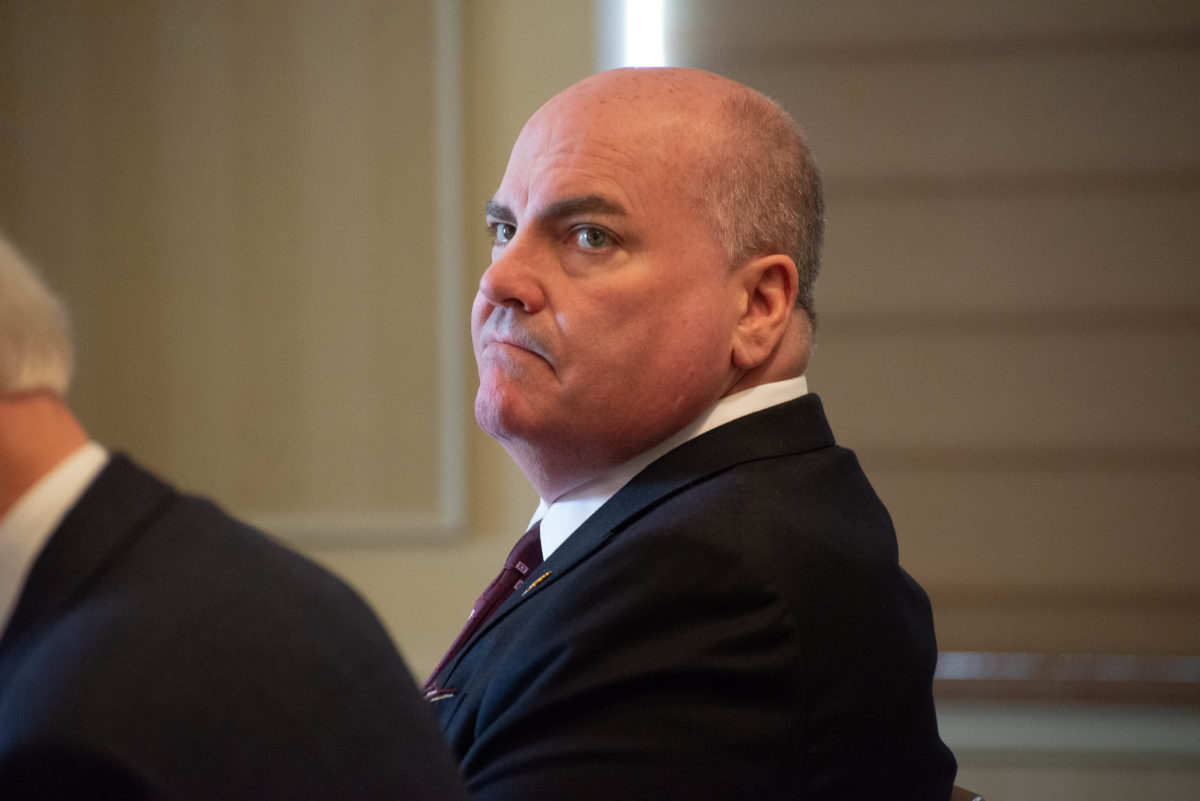
For his role enabling financial malpractice by the former head of Pelco Structural, Donald Eagleton Jr. was sentenced Feb. 1 in the U.S. District Court for the Northern District of Oklahoma to six months of house arrest and three years of probation by Judge David O. Nuffer, a federal judge from Utah. According to Curtis Killman with the Tulsa World, Eagleton was charged with one count of misprision of a felony for allegedly helping his former boss, Phil Albert, commit wire fraud.
Eagleton was charged and pleaded guilty in fall 2022. Albert, who also pleaded guilty in early 2023, is awaiting sentencing and faces up to five years for a tax evasion charge related to his role in the scheme. Although Albert — a former University of Oklahoma regent and a top political donor in the state — was accused of embezzling more than $7 million from the company, he was only charged with tax evasion.
In December, Judge John F. Heil III was reassigned Alberts’ case after Judge Gregory K. Frizzell recused, possibly because Albert and Frizzell used to live a couple of blocks apart in the same Tulsa neighborhood. Albert is scheduled to be sentenced in May.
Judges celebrated in Tulsa
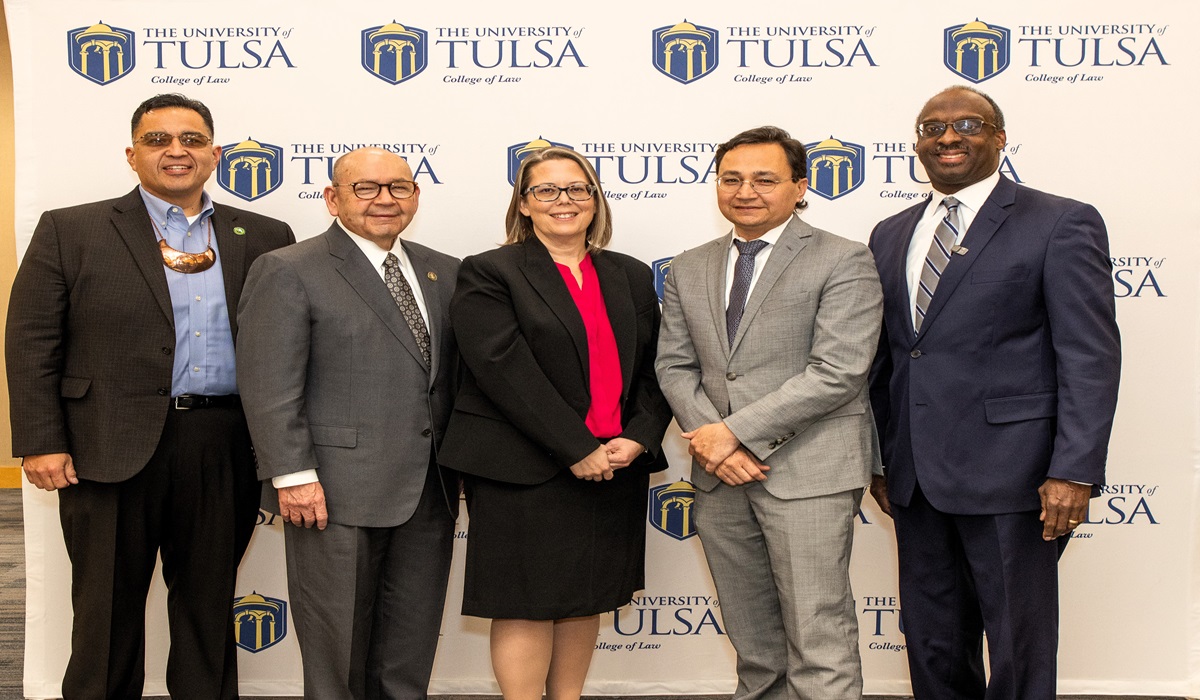
Tulsa lawyers were in a celebratory mood last month, with events organized to honor Judge Terence Kern’s 30 years of service in the Northern District of Oklahoma and the two new federal judges confirmed by the U.S. Senate in December, Sara Hill and John Russell.
On Jan. 11, the northern and eastern district federal bar associations hosted an event to honor Kern, who was appointed to the bench by then-President Bill Clinton in 1994. Kern assumed senior status in 2010 when his replacement, Judge John Dowdell, was appointed by then-President Barrack Obama.
Kern, who turns 80 this year, talked about some of his high-profile cases during the event, recalling his ruling to legalize same-sex marriage in Oklahoma after the U.S. Supreme Court’s Obergefell v. Hodges decision. He recounted strong public backlash to that decision, including one death threat his office received that asked for his address and inquired whether the judge’s home had a wheelchair ramp since the caller was disabled and could not climb stairs.
Kern’s open civil cases were reassigned to Hill and Russell on Jan. 29.
On Jan. 19, the University of Tulsa College of Law hosted a reception to honor its alumna and newly appointed Judge Sara Hill. Former Cherokee Nation Supreme Court Justice Stacy Leeds and Cherokee Nation Principal Chief Chuck Hoskin Jr. both spoke at the event. Other tribal leaders — such as Muscogee Nation Second Chief Del Beaver and Chickasaw Nation Gov. Bill Anoatubby — also attended.
During the event, Leeds articulated connections between the Cherokee Nation, the University of Tulsa and Oklahoma history. She told the story of Samuel Worcester and his case that went to the U.S. Supreme Court representing the interests of the Cherokee Nation before the Trail of Tears and his family’s connection to the University of Tulsa.
“Rev. Worchester’s granddaughter was Ms. Alice Robertson,” Leeds said. “In addition to being the first woman to ever serve the state of Oklahoma in the United States Congress, she ran a boarding school for Indian girls, and that boarding school became Kendall College, and Kendall College became the University of Tulsa.”
Leeds said it was fitting that Hill is an alumnae of the school founded by Robertson, someone with strong ties to the Cherokee Nation.
“As the first Cherokee citizen judge takes her seat, it’s also equally fitting that she received her legal education here at the University of Tulsa, or Ms. Alice’s school,” Leeds said. “That Worchester family legacy lives on through her.”
Judge to Oklahoma County Jail: Transfer detainees to Vinita hospital faster

Oklahoma County District Court Judge Susan Stallings has ordered the transfer of about 20 detainees at the Oklahoma County Jail who suffer from severe mental health problems to the Oklahoma Forensic Center in Vinita.
According to a report by Alyse Jones of KOCO, the ruling came after Stallings ordered the transfer of a detainee deemed unfit for trial and the transfer was delayed for more than a month. Detainees at the jail in need of comprehensive mental health treatment sometimes have to wait for more than a year to be transferred to facilities equipped to treat those problems.
“This is not the environment for someone who has severe mental health needs. It’s not a therapeutic environment,” Oklahoma County Jail CEO Brandi Garner told KOCO.
The issue of how to deal with those arrested who also have mental health problems has been ongoing for years at the jail. Oklahoma County has plans to construct a $40 million mental health facility using federal American Rescue Plan Act funds in an effort to ease the problem of housing detainees with severe mental health problems at the county’s jail, but broader delays over where to build the new county jail have stalled the mental health facility’s progress.
Choctaw Nation plans new courthouse for McAlester
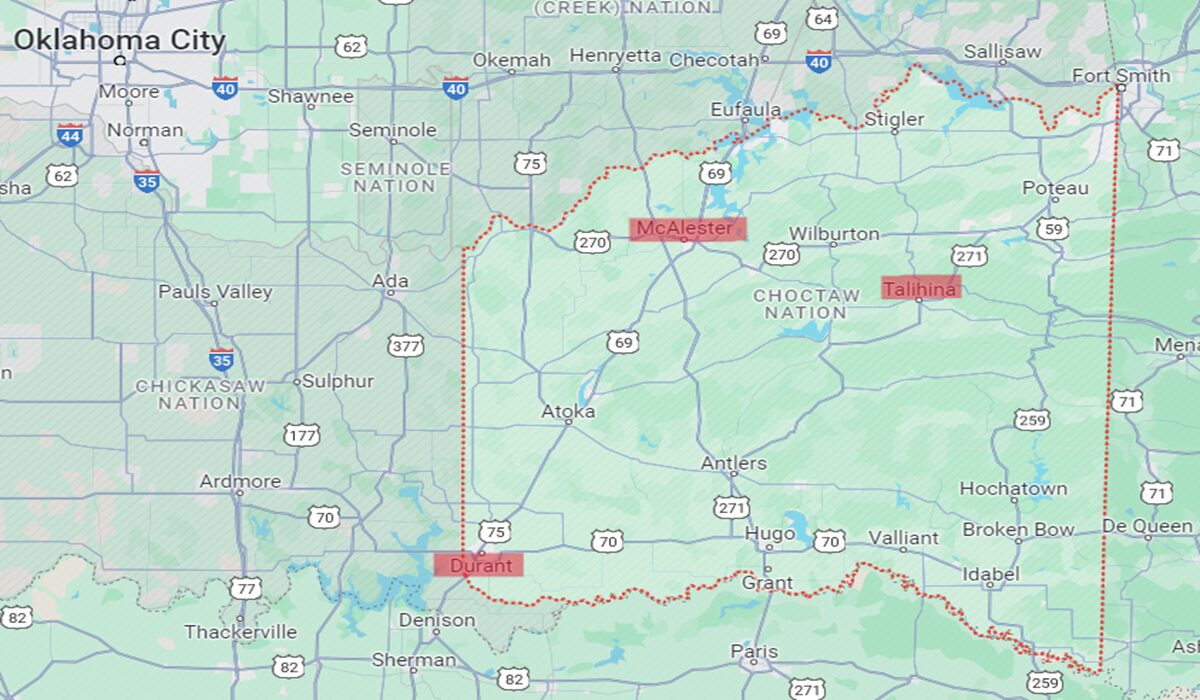
The Choctaw Nation approved the purchase of a building in McAlester with plans to convert the building into a new courthouse, according to Derrick James with the McAlester News-Capital.
Since the McGirt v. Oklahoma decision functionally affirmed a series of Indian County reservations in eastern Oklahoma, several of those tribes have expanded their criminal justice systems in order to handle an influx of criminal cases involving tribal citizens that had previously been adjudicated in state court.
The Choctaw Nation currently has two courthouses: one in Talihina and another in Durant. The McAlester courthouse, once opened, would become the third and northernmost courthouse in the Choctaw Nation. No timeline has been released for the project.
Follow @NonDocMedia on:
Facebook | X | Text or Email
Still need more? Other Oklahoma tidbits to note
There are always new legal issues bubbling up in Oklahoma. Some of the top issues worth watching are:
- Rep. Jim Olsen (R-Roland) filed a House joint resolution that, if passed by the Legislature, would see Oklahomans vote on whether to enshrine in the Oklahoma Constitution that “personhood begins at conception.” Tamya Cox-Touré, executive director for the American Civil Liberties Union of Oklahoma and chairwoman of the Oklahoma Call for Reproductive Justice, told Janelle Stecklein with Oklahoma Voice that the amendment could affect contraceptive use, in vitro fertilization and state taxes.
- Former Tulsa police officer Deangelo Reyes is still at large after a bench warrant was issued for his arrest last month when he failed to appear for a court hearing. After deputies with the Cleveland County Sheriff’s Office believed they had found Deangelo, a heated altercation with the Lexington Police Department involved a Lexington officer pulling over Sheriff Chris Amason for speeding while he was responding to the call about Deangelo’s potential location. Neither department apprehended Deangelo, and the spat has reportedly escalated existing tensions over the Lexington animal shelter.
Legal cases take time to move through the court system. Here are some recent developments in cases NonDoc has previously covered:
- Matthew Joseph Douglas’ criminal case in the Muscogee Nation was continued to March 27 during a hearing on Jan. 17.
- Brayden Kent Bull’s criminal case in the Cherokee Nation was continued to April 4 in a hearing on Jan. 11.
- Shawn McKibbin, the former Chelsea chief of police charged with two financial crimes on Dec. 22, had his case continued to Feb. 20 in a hearing on Jan. 29.
- According to court records in Billy Zane Deo‘s two criminal cases, he failed to appear at his January court date and a bench warrant was issued Jan. 30 in Okfuskee County.
- The removal of an 84-turbine wind farm in Osage County leaves Shidler and Woodland Public Schools without the property tax revenue from the development, which could cost Shidler Public Schools approximately $500,000 in revenue annually.
(Editor’s note: Matt Patterson contributed to this article.)











